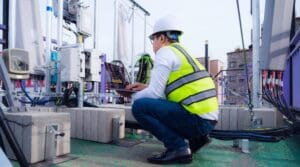
Communities transform when environmental responsibility shapes their infrastructure strategies. Roads, bridges, and urban systems define daily life, and each decision about materials affects long-term ecological stability. Engineers, contractors, and planners seek methods that preserve natural resources while maintaining structural strength.
Governments and local builders benefit when infrastructure projects adopt circular practices. Recycling asphalt saves money by reducing the need for new production and transport. Reclaimed materials also perform comparably to newly manufactured options, offering durability and strength without compromising safety.
By prioritizing recycled resources, communities build a stronger connection between progress and preservation. Every road paved with renewed material becomes a visible statement of collective responsibility and foresight.
Balancing Sustainability with Social Responsibility
Sustainability extends beyond environmental action and enters the realm of personal care and compassion. Individuals seek ways to live responsibly and prepare for life’s eventual transitions with awareness.
A burial insurance option allows people to plan financially for final expenses while reducing stress on loved ones. Responsible planning provides peace of mind by preventing last-minute financial strain and emotional pressure.
Making informed financial choices contributes to long-term stability for individuals and communities alike. Exploring a burial insurance option early creates predictability in situations that often cause uncertainty. Each contribution supports security, offering protection that aligns with the values of preparedness and care.
By addressing financial obligations before they become urgent, families preserve dignity and maintain clarity. Thoughtful preparation becomes an act of respect for both loved ones and the planet.
Strengthening Economic Systems Through Smarter Billing Practices
Financial management evolves as organizations search for models that combine clarity, fairness, and reliability. A subscription billing platform reflects these values by promoting structure in recurring transactions. This system supports transparency between providers and clients, helping both parties understand costs and expectations.
Organizations using structured billing methods can better forecast revenue and plan for sustainable growth. A subscription billing platform encourages consistent engagement and helps track customer retention. By adopting automated and transparent billing frameworks, financial teams reduce errors and strengthen trust.
Predictability allows planning for expansion without unnecessary financial risk or confusion. Businesses that adopt recurring payment systems create stronger relationships based on dependability and fairness.
Integrating Environmental and Financial Innovation
Environmental responsibility and financial foresight share more similarities than many people realize. Both require careful planning, accurate measurement, and a commitment to improvement over time. The concept of recycling asphalt parallels the financial discipline required for stable budgeting.
Just as reused pavement materials reduce waste, organized billing systems reduce financial confusion. When systems operate smoothly, communities and businesses both experience stronger and more sustainable outcomes.
Long-term progress depends on aligning environmental goals with sound fiscal management. A balanced approach allows leaders to invest in sustainable technologies while maintaining accountability. Similarly, exploring options like burial insurance demonstrates financial care and responsible planning.
Every layer of innovation, from green construction to improved billing systems, reinforces the same principle: thoughtful design sustains both resources and relationships.
Encouraging Collective Participation in Sustainability
Progress grows when communities participate collectively in sustainable decision-making. Each resident, worker, and policymaker contributes to a shared goal of preservation and stability. Recycling asphalt in public projects offers citizens visible evidence that progress can protect the planet.
When individuals see tangible results of sustainable practices, they feel motivated to support similar actions in their neighborhoods. Engagement strengthens when people understand how small changes influence long-term outcomes.
Financial literacy programs can reinforce these lessons by helping people make responsible personal decisions. Learning about burial insurance options teaches the value of preparation, while understanding subscription billing concepts improves awareness of recurring commitments.
Knowledge builds empowerment and helps residents connect economic behavior with environmental stewardship. When communities align financial understanding with ecological awareness, cooperation becomes second nature. Education remains the bridge between knowledge and meaningful action that shapes sustainable futures.
Conclusion
Sustainability thrives through coordination between environmental and financial innovation. Recycling asphalt demonstrates how practical solutions can reduce waste and strengthen infrastructure. Exploring a burial insurance option reinforces personal responsibility and financial stability within families.
Adopting systems like a subscription billing platform brings transparency and predictability to economic exchanges. Each of these practices supports the broader goal of long-term societal balance.
The integration of sustainability across construction, finance, and personal planning creates a model for responsible progress. When communities and organizations act with foresight, resources are preserved and relationships strengthened.
Read more:
Innovative Solutions for Sustainable Infrastructure and Financial Management





